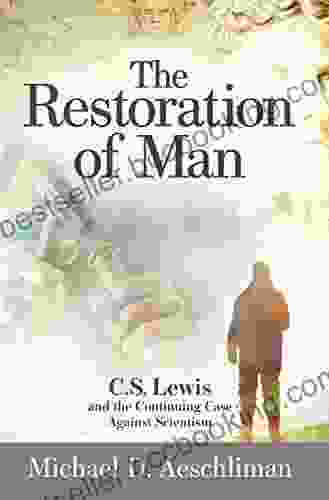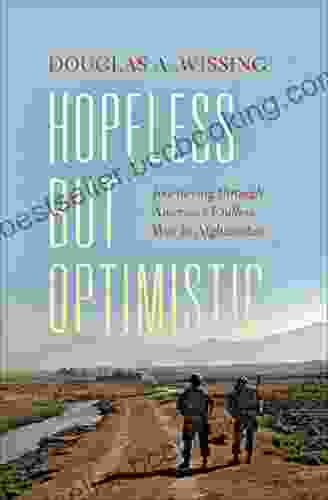Challenging the Tyranny of Scientism: Uncover the Truth in Lewis and the Continuing Case Against Scientism

In an era where science and technology dominate our society, it is imperative to critically examine the underlying assumptions and limitations of the scientific method. C.S. Lewis, a brilliant writer and theologian, dedicated his life to exposing the dangers of scientism, an ideology that claims that science is the only valid source of knowledge and that all other forms of inquiry, such as philosophy and religion, are inferior. In his seminal work, Lewis and the Continuing Case Against Scientism, Lewis and a group of distinguished intellectuals present a powerful critique of scientism, arguing that it undermines human reason and the pursuit of truth.
4.7 out of 5
| Language | : | English |
| File size | : | 1409 KB |
| Text-to-Speech | : | Enabled |
| Screen Reader | : | Supported |
| Enhanced typesetting | : | Enabled |
| Word Wise | : | Enabled |
| Print length | : | 184 pages |
| Lending | : | Enabled |
This article will delve into the profound insights of Lewis and the Continuing Case Against Scientism, exploring the various ways in which scientism distorts our understanding of reality. We will examine the book's arguments against the overreach of science, its rejection of human reason, and its suppression of alternative perspectives. By engaging with the ideas presented in this groundbreaking work, we can gain a deeper understanding of the limitations of science and the importance of embracing a holistic worldview that values both scientific knowledge and the insights of philosophy, religion, and the humanities.
The Overreach of Science
One of the central arguments of Lewis and the Continuing Case Against Scientism is that science has overstepped its boundaries and has attempted to claim authority over areas that lie beyond its scope. Lewis argues that science is a powerful tool for understanding the natural world, but it is not equipped to answer questions about morality, meaning, or the nature of reality. Scientism, however, elevates science to the status of a universal authority, claiming that it is the only valid source of knowledge about all aspects of existence.
Lewis provides numerous examples of how scientism has led to absurd and dangerous s. For instance, he cites the case of eugenics, a movement that sought to improve the human race through selective breeding. Eugenicists claimed that their theories were based on scientific principles, but their ideas were ultimately rooted in prejudice and discrimination. Another example is the rise of social Darwinism, which applied the principles of natural selection to human society, justifying inequality and oppression as the inevitable result of biological competition.
The overreach of science is a serious threat to human freedom and well-being. By claiming to hold a monopoly on truth, scientism stifles dissent and discourages the exploration of alternative perspectives. It creates a culture of intellectual conformity, where questioning established scientific dogmas is seen as heresy. This can lead to a narrowing of our understanding of the world and a loss of our ability to think critically and independently.
The Rejection of Human Reason
Another major criticism that Lewis and his fellow authors raise against scientism is its rejection of human reason. Scientism claims that all knowledge must be derived from scientific observation and experimentation, and that any beliefs that cannot be empirically verified are irrational and should be dismissed. This narrow view of knowledge excludes a wide range of human experience, including intuition, imagination, and moral reasoning.
Lewis argues that human reason is a valuable and reliable source of knowledge, and that it is essential for making sense of the world around us. He points out that many of the greatest scientific discoveries were made through the use of reason and logical deduction, rather than through pure experimentation. For example, Albert Einstein developed his theory of relativity based on thought experiments and mathematical reasoning, rather than on empirical observation.
The rejection of human reason by scientism has led to a decline in critical thinking and a rise in irrationalism. Many people have become so disillusioned with science that they have turned to alternative sources of knowledge, such as superstition, conspiracy theories, and religious fundamentalism. This is a dangerous trend that can have serious consequences for our society.
The Suppression of Alternative Perspectives
One of the most insidious consequences of scientism is its suppression of alternative perspectives. Scientists who challenge the established scientific consensus often face ridicule, ostracism, and even persecution. This creates a climate of fear and intimidation that discourages dissent and stifles the free exchange of ideas. As a result, many important perspectives are marginalized and ignored.
Lewis provides several examples of how alternative perspectives have been suppressed by scientism. He cites the case of Immanuel Velikovsky, a scientist who proposed a radical theory about the history of the solar system. Velikovsky's theory was rejected by the scientific establishment, and he was ridiculed and ostracized by his colleagues. Despite the fact that Velikovsky's theory has not been fully accepted by the scientific community, it has inspired a number of new lines of inquiry and has helped to challenge the conventional understanding of the solar system.
The suppression of alternative perspectives is a serious threat to the progress of knowledge. It prevents us from considering new ideas and exploring different ways of understanding the world. It also creates a culture of intellectual intolerance, where dissenting voices are silenced and marginalized.
Lewis and the Continuing Case Against Scientism is a powerful and timely critique of the dangers of scientism. Lewis and his fellow authors argue that scientism overreaches its boundaries, rejects human reason, and suppresses alternative perspectives. By challenging the tyranny of scientism, we can open ourselves up to a broader and more nuanced understanding of the world around us. We can embrace a holistic worldview that values both scientific knowledge and the insights of philosophy, religion, and the humanities.
In an age of rapid technological advancement, it is more important than ever to be critical of the claims of science. We must not allow scientism to dictate the limits of our knowledge and understanding. By embracing a diversity of perspectives and fostering a culture of intellectual freedom, we can create a more just, equitable, and humane society for all.
4.7 out of 5
| Language | : | English |
| File size | : | 1409 KB |
| Text-to-Speech | : | Enabled |
| Screen Reader | : | Supported |
| Enhanced typesetting | : | Enabled |
| Word Wise | : | Enabled |
| Print length | : | 184 pages |
| Lending | : | Enabled |
Do you want to contribute by writing guest posts on this blog?
Please contact us and send us a resume of previous articles that you have written.
 Book
Book Novel
Novel Page
Page Chapter
Chapter Text
Text Story
Story Genre
Genre Reader
Reader Library
Library Paperback
Paperback E-book
E-book Magazine
Magazine Newspaper
Newspaper Paragraph
Paragraph Sentence
Sentence Bookmark
Bookmark Shelf
Shelf Glossary
Glossary Bibliography
Bibliography Foreword
Foreword Preface
Preface Synopsis
Synopsis Annotation
Annotation Footnote
Footnote Manuscript
Manuscript Scroll
Scroll Codex
Codex Tome
Tome Bestseller
Bestseller Classics
Classics Library card
Library card Narrative
Narrative Biography
Biography Autobiography
Autobiography Memoir
Memoir Reference
Reference Encyclopedia
Encyclopedia Dennis O Neil
Dennis O Neil Dian Perry
Dian Perry Dima Zales
Dima Zales Dennis Snow
Dennis Snow Dr Lucie Rivera
Dr Lucie Rivera Derek C Evans
Derek C Evans Don Orwell
Don Orwell Denise Uwimana Reinhardt
Denise Uwimana Reinhardt Devin Olsen
Devin Olsen Dina Rose
Dina Rose Dennis Kincaid
Dennis Kincaid Deborah Taylor Hough
Deborah Taylor Hough Dianne C Braley
Dianne C Braley Dmitry Samarov
Dmitry Samarov Dorie Greenspan
Dorie Greenspan Donella H Meadows
Donella H Meadows Diane Tuckman
Diane Tuckman Deena Kaye
Deena Kaye Don Seddon
Don Seddon Donna R Causey
Donna R Causey
Light bulbAdvertise smarter! Our strategic ad space ensures maximum exposure. Reserve your spot today!

 Derrick HughesThe Long Black Coat: A Literary Masterpiece That Unravels the Depths of Human...
Derrick HughesThe Long Black Coat: A Literary Masterpiece That Unravels the Depths of Human...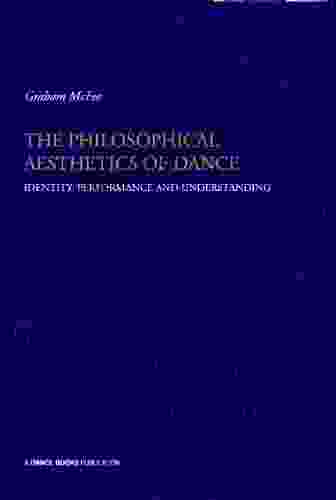
 Rodney ParkerThe Philosophical Aesthetics of Dance: A Literary Journey into the World of...
Rodney ParkerThe Philosophical Aesthetics of Dance: A Literary Journey into the World of... Dwight BlairFollow ·18.4k
Dwight BlairFollow ·18.4k Theo CoxFollow ·14.6k
Theo CoxFollow ·14.6k David BaldacciFollow ·11.5k
David BaldacciFollow ·11.5k Jeremy MitchellFollow ·18.6k
Jeremy MitchellFollow ·18.6k Cortez ReedFollow ·15.1k
Cortez ReedFollow ·15.1k Neil GaimanFollow ·13.5k
Neil GaimanFollow ·13.5k Josh CarterFollow ·3.1k
Josh CarterFollow ·3.1k Nathan ReedFollow ·15.3k
Nathan ReedFollow ·15.3k
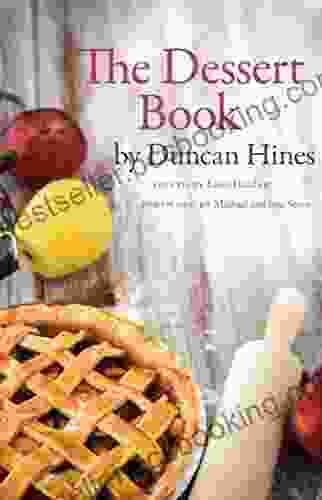
 J.D. Salinger
J.D. SalingerThe Quintessential American Cook: A Culinary Journey with...
Prologue: The Man...
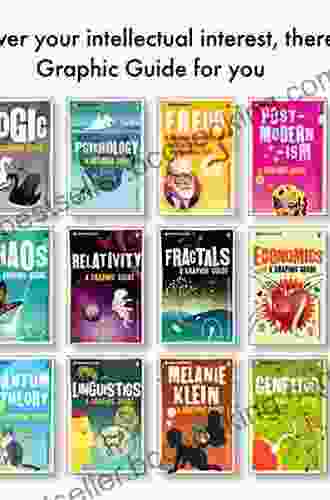
 Franklin Bell
Franklin BellIntroducing Romanticism: A Literary Guide to the Romantic...
Romanticism was a...

 Denzel Hayes
Denzel HayesThe Untold And Inspiring Story Of Eric Liddell Hero Of...
The Olympian Who Defied...
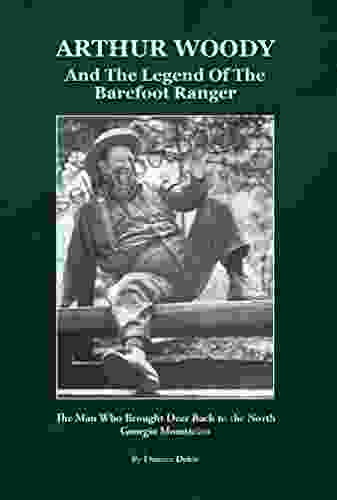
 Oscar Wilde
Oscar WildeDiscover the Enchanting Adventure of Arthur Woody and the...
Immerse Yourself in a World of Mystery,...
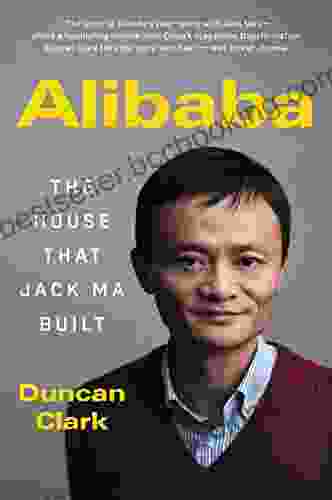
 Fernando Bell
Fernando BellAlibaba: The House That Jack Ma Built
The Rise of the Chinese E-Commerce Giant ...

 Leo Tolstoy
Leo TolstoyCrossing Continents: A History of Standard Chartered Bank
By John M. Smith Crossing...
4.7 out of 5
| Language | : | English |
| File size | : | 1409 KB |
| Text-to-Speech | : | Enabled |
| Screen Reader | : | Supported |
| Enhanced typesetting | : | Enabled |
| Word Wise | : | Enabled |
| Print length | : | 184 pages |
| Lending | : | Enabled |


